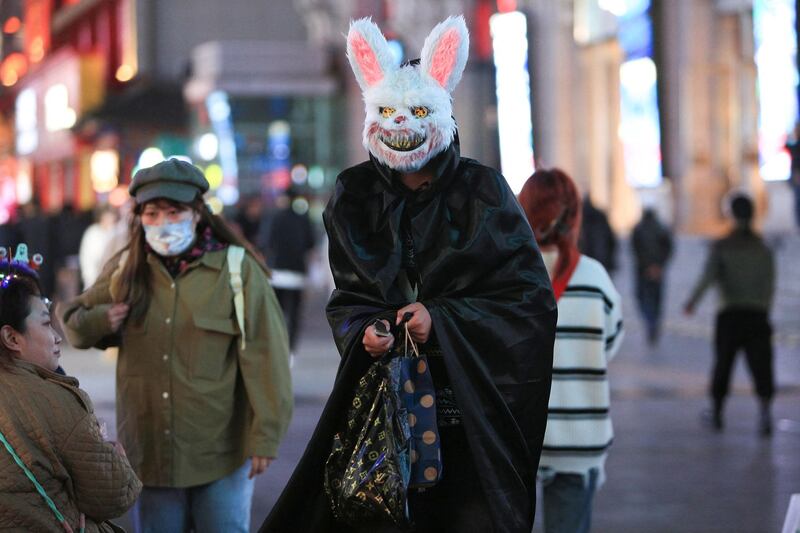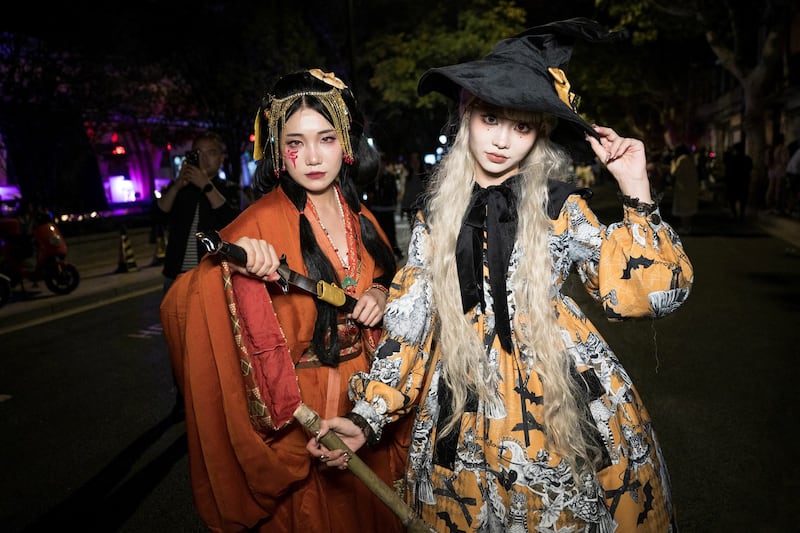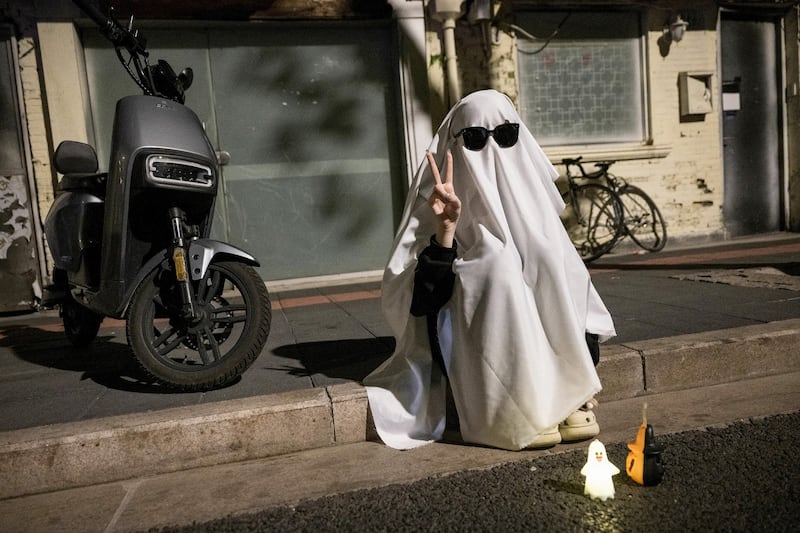Braving official disapproval of imported 'Western' festivals, young people gathered to mark Halloween on the streets of Shanghai this week, with some wearing Winnie the Pooh and COVID-19 enforcer costumes in a satirical swipe at their government.
News footage and social media clips showed spontaneous street gatherings of people in Halloween costumes, including ghosts and Chinese-style corpse brides, along with some more contemporary horrors: the white-clad COVID-19 enforcers of the zero-COVID lockdowns and even Winnie-the-Pooh – a figure banned by censors due to his reported resemblance to President Xi Jinping.
Several people at one gathering sported head-to-toe white hazmat suits, wielding coronavirus testing swabs and dispensing hand sanitizer to passers-by, in a jovial nod to the horrors and anguish experienced by many in the city under its 2022 lockdown.
Commentators said the costumes were a relatively safe way to take political shots at the authorities without getting into trouble.
Another person came as beauty influencer Austin Li, asking onlookers why everything was so expensive, while another dressed as Taiwan's cat-loving president, Tsai Ing-wen, who has vowed to defend the island's democratic way of life from infiltration or invasion by Beijing.
Avoiding red lines
"It seems that people are still pretty savvy, despite the high level of political pressure [we are under]," a Halloween reveler who gave only the nickname Qi Ao told RFA Mandarin on the evening of Oct. 31, after returning from a party in Shanghai's Xintiandi district.
"Some people are expressing their political views through cosplay," Qi said.

"These are people who have always wanted to express themselves, so now they are making a political point through Halloween," he said. "They are making their voices heard without crossing the government's red lines."
"People like that have always existed in China," Qi said, adding that the majority of such costumes were worn by young people.
A resident of the eastern city of Hangzhou who gave only the pseudonym Ge Ping for fear of reprisals, said he had noticed a number of people in costume in bars in the city during Halloween, but that the streets there seemed "deserted."
"People here don't talk politics much – they're more into selling stuff and live streams," Ge said. "Shanghai is different – there are a lot of foreigners there and a lot of young people."
He said dressing up makes a point that the person in costume has chosen to disregard conservative mainstream ideas, even if it's just for the one night.
"It's a form of political deconstruction – it's a bit like toad worship," he said in a reference to an online subculture that passes around memes of former Chinese president Jiang Zemin, who is depicted as a toad in large-framed spectacles. "That's been around for more than 10 years."

Ge said "political deconstruction" is an indirect expression of public dissatisfaction with those in power.
"Things are so tense in China right now," he said. "In Taiwan, politicians all appear on talk shows, but in China, we have to rely on such things [as cosplay] for our deconstruction."
"Everyone has been under pressure due to the pandemic ... I think it's a continuation of that."
No positive changes
A former Shanghai resident who gave only the nickname Emily agreed.
"The pandemic controls may have been lifted, but nothing has really changed for the better, not the political atmosphere, not freedom of speech, not the economy, nor people's ability to make a living," she said.
She said many people in Shanghai, which has a long history as a cosmopolitan financial hub, have been shocked on returning to live in the city after studying or living overseas.

"Anyone who has studied or lived overseas has experienced normal life, so they may not be used to the way things work when they get back to Shanghai," she said.
Very few people are willing to say anything directly critical, even in the United States, she said.
"Most people I know are far more willing to say good things about China," she said. "Maybe they have no choice, because they have to go back there."
Translated by Luisetta Mudie. Edited by Malcolm Foster.

